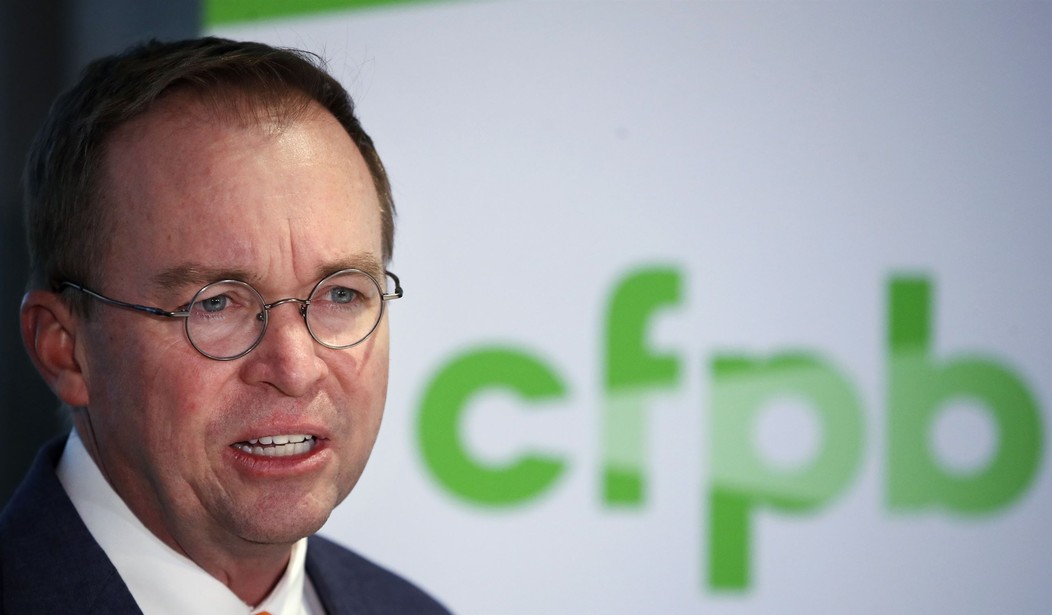The Supreme Court will hear oral arguments in a case with far-reaching implications. At issue is how independent government agencies are funded and whether Congress is violating the Constitution’s appropriations clause when budgeting monies for them.
The list of independent agencies that could be affected is staggering: the EPA, FCC, FTC, FEC, Social Security Administration, and dozens more. This specific case involves the agency that just won’t die — the Consumer Financial Protection Bureau (CFPB) — and its rules regarding “payday loans.”
The trade group for the payday loan industry — the Community Financial Services Association (CFSA) — is claiming that the CFPB has no authority to regulate anyone because Congress never specifically funded the agency. Congress instead took money from the Federal Reserve’s budget to fund the CFPB operations.
A lower court found in favor of the trade group, and the appeal has now landed in the lap of the high court.
Sheila Bair, former head of the FDIC, explains the risk for the agencies in question.
Essential government agencies and programs, including Social Security and Medicare, both of which are administered by independently funded bodies, would see their sources of independent funding vulnerable to challenge. The Federal Reserve, responsible for monetary policy and our payments system, would be particularly at risk, given that it runs on fees and profits from its market operations just like the CFPB. The budgets of the Office of the Comptroller of the Currency, responsible for regulating the nation’s largest banks, and the Federal Housing Finance Administration, responsible for overseeing housing finance, are also independent, coming from funds paid by the entities they regulate.
Requiring these agencies to seek direct Congressional approval for money to function would be particularly dangerous in times of crisis.
The conservatives’ reasoning in this case is sound. These agencies develop rules and regulations that have the force of law, so why shouldn’t their budgets be appropriated by Congress?
Ms. Bair points out that Congress has “oversight” responsibilities and sets “various limits and parameters, including for the CFPB.” In theory, she’s right. But given what some of these independent agencies have been up to when government is more “activist” than not, it’s easy to see why simple Congressional “oversight” isn’t good enough.
For example, the National Labor Relations Board has put a heavy thumb on the scale and tilted the labor-management dynamic decidedly in the unions’ favor. The NLRB was never supposed to be an advocacy arm for organized labor. And yet in decision after decision, the NLRB has not only decided for organized labor but has also made it much easier for unions to gain a foothold in industries they historically have been unable to crack.
Would the NLRB be so enthusiastically pro-union if Congress held the purse strings?
Congress created the CFPB in 2010 and insulated it from political and industry interference in carrying out its consumer protection mandate in order to stop the kind of reckless lending that led to the financial crisis. And it worked. Today, the CFPB is a big reason why there is very little distress in mortgage finance, even as other sectors of our financial system are under pressure.
People of good will can differ on its funding structure. (I had strongly supported the CFPB but thought its funding should come from more traditional regulatory assessments.) But that’s a policy issue for Congress to decide, not the Supreme Court.
The cascade of Constitutional challenges to funding for independent federal agencies will probably not happen, although individual challenges are probable. For the CFPB, its mandate has always been far too broad and arbitrary. The rules governing payday loans, for example, sank many honest operations in addition to the crooks. The agency’s rules on home loans have put homeownership out of the reach of many and for no reason.
I think most federal agencies — independent or not — would benefit from federal oversight of their funding. And the taxpayer should be demanding it.










